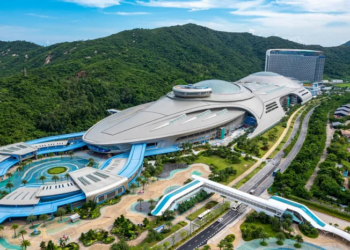From the analysis of reports of various expeditions it follows that the leaders in the fight against sensory hunger and “expeditionary rabies” tried to load as much as possible with the work of their subordinates. So, p. Amundsen wrote: “An important condition for the expedition in polar ice to pass safely and all its participants worked together in trouble and in luck, there is a constant full load by the work of each participant. The boss is obliged to monitor the fulfillment of this condition, that for a long period of time it is sometimes difficult to do. However, idleness is extremely demoralized.
Similar thoughts are expressed and p. BARD: “Undoubtedly, there are many ways to confront the polar night, but we seized on the simplest and most practical – our best comrade was labor, we gave him an ally – a system. It was our weapon of struggle… Most of the polar night we were busy with a huge preparatory work, which had to be finished by spring, huck that we literally had no time left for relaxation, where did we get bored! Do not forget that the people who went with me south were remarkable people whom I chose from a thousand… It seems to me that the lack of a certain regime was the cause of the suffering of many wintering expeditions…”. E. Bishop also writes that during the expedition it is necessary to ensure that “there is not a single incomplete minute and boredom does not seep”.
In all space flights, crew members had little free time: they were busy managing the ship and its systems, conducting numerous scientific experiments, physical exercises, repair and household work. G. T. Dobrovolsky wrote: “All the time they are busy with any work on the ship, then the replacement of tanks with drinking water, then the inclusion of scientific equipment, then control of the ship’s systems and the compilation of the program of the day, communication, etc. D.”. About this side of the flight at g. We find the coastal one: “Here, in the compartments of the spacecraft, my life is filled with active and interesting activities to the limit: unique, absorbing everything entirely of work, a huge, non -consulting interest in the environment, in, for example, that you see behind the glass of portholes…”.
Also. M. Sechenov showed that the motor activity of a weary hand is restored faster if a person is not easy, sitting, resting, but begins to work with another hand. Thus, the ability to switch from one activity to another plays a large role in restoring working capacity: from serious reading – to fiction, from mental, experimental work – to physical. Many outstanding personalities in their autobiographies note that with fatigue they changed one type of activity to another. “With amplified mental work,” wrote l. N. Tolstoy, – without movement, the existing grief. I don’t go away, do not work with your hands and legs for at least one day, in the evening I am already not going anywhere: neither read, nor write, nor even carefully listen to others… And the night passes without sleep “. AND. P. Pavlov, until old age, loved to take long walks on foot or on a bicycle, worked with pleasure in the garden, played in towns, sailed in the Neva until late autumn.
Returning to living conditions in expeditionary conditions, I would like to pay attention to recording p. Amundsen, made after the expedition ended in the Arctic on the Mod vessel, which lasted three years: “We have never had a shortage of work. If anything was missing, then only the time to fulfill it. I completely agree that work is the main foundation on which the expedition should be based, but nevertheless, the work is not all, and the leader who thinks differently will make a major mistake. He will achieve the fact that the work will become considered a burden, not joy, and, undoubtedly, it will come time when time and even at work will seem long. “.
As experiments showing the conditions of long space flights showed, the work itself, although diverse, but repeating from day to day, cannot be a panacea in the fight against sensory failure and monotony of existence. This conclusion is confirmed by long space flights.
The question of free time in the routine of people working in extreme conditions for maintaining performance and mental health is very important. The general principle of psychohigie in extreme conditions is the approach of labor, life and rest both in character and in content, to life in ordinary conditions.






